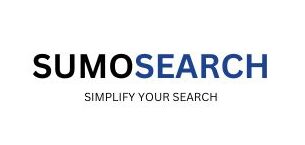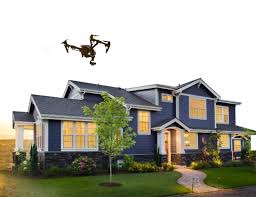How AI and Drones Are Revolutionizing Residential Roof Inspections?
Traditional roof inspections often require professionals to climb ladders, walk on unstable surfaces, and manually assess the condition of shingles, flashing, and other roofing materials. This process is not only time-consuming but also poses safety risks. However, AI-powered drones transform how residential roofs are inspected by offering a faster, safer, and more accurate solution. We will explore more about Tennessee Roofing Concepts and how this technology is reshaping the industry by reducing human errors, enhancing efficiency, and improving data analysis for homeowners and roofing companies.
AI and drones work together to create detailed reports beyond what the human eye can detect. Equipped with high-resolution cameras and infrared sensors, drones can scan rooftops in a fraction of the time it would take a manual inspector. AI-powered software then processes the images, identifying cracks, missing shingles, water damage, and heat loss. This automation ensures that inspections are thorough and unbiased, removing the possibility of human oversight. Additionally, AI can compare historical data with real-time scans, predicting potential future problems and offering maintenance recommendations. The ability to anticipate issues before they become costly repairs is a game changer for homeowners who want to maintain their roofs efficiently.
Drones also enhance safety by eliminating the need for inspectors to access dangerous areas physically. Roofs with steep slopes or structural damage can be hazardous, increasing the risk of falls and injuries. With drones, inspections can be conducted from a safe distance while still providing precise results. This technology is particularly useful after storms or natural disasters when roofs may be unstable. Insurance claims can be processed faster by quickly assessing damage, and necessary repairs can be scheduled without delay. The combination of AI and drones is making roof inspections more efficient, accessible, and data-driven, improving the overall experience for homeowners and contractors alike.
The Impact on Cost, Time, and Accuracy
One of the most significant advantages of using AI and drones for residential roof inspections is the reduction in cost and time. Traditional inspections require multiple workers, equipment, and hours of manual labor. Homeowners often have to schedule appointments well in advance, wait for the inspection to be completed, and then receive a report days later. AI-driven drone inspections streamline this process by collecting and analyzing data almost instantly, allowing homeowners to obtain results in hours instead of days.
The cost-effectiveness of drone inspections is another major benefit. While the initial investment in drone technology and AI software may be high, the long-term savings are substantial. Companies no longer need to invest heavily in safety equipment, reduced labor costs, and the efficiency of inspections allows for more homes to be assessed in a shorter period. This means that roofing companies can offer competitive pricing while still maintaining high-quality service. This translates to lower inspection fees and quicker access to necessary repairs or home maintenance recommendations.
AI-driven analytics improve the accuracy of roof inspections by eliminating human error. Traditional inspections rely on an inspector’s judgment, which can be influenced by experience, fatigue, or environmental conditions. AI software, however, evaluates data consistently and objectively. It can detect subtle signs of damage that might be overlooked in a manual inspection, such as small cracks that could lead to leaks or areas with weak structural integrity. This precision ensures that homeowners receive reliable reports, leading to better decision-making regarding roof repairs or replacements.
Furthermore, AI and drones provide a comprehensive view of a roof’s condition by capturing angles and details that would be difficult to assess manually. Generating 3D models and thermal imaging reports adds another layer of depth to the analysis, helping homeowners and contractors visualize potential problem areas. These insights allow for proactive maintenance rather than reactive repairs, extending the lifespan of residential roofs and preventing costly damage.
READ MORE : Optimizing Team Efficiency with Smart Service Scheduling
How AI Predicts Roof Maintenance Needs
AI technology is transforming the way roofs are inspected and maintained. Predictive analytics allows AI software to assess patterns and trends in roofing damage, helping homeowners take preventative measures before minor issues become major repairs. AI can identify common wear-and-tear problems associated with specific materials, climates, and roofing structures by analyzing data from past inspections.
For instance, if a neighborhood experiences frequent hailstorms, AI can determine which types of shingles are most prone to damage and recommend upgrades to more durable materials. Similarly, if a roof section shows early signs of water infiltration, AI can alert homeowners to apply protective coatings or schedule maintenance before leaks develop. This proactive approach reduces long-term repair costs and enhances the longevity of roofing materials.
Another advantage of AI-driven maintenance planning is its ability to optimize roofing schedules based on environmental conditions. Instead of waiting for visible signs of damage, homeowners can receive timely notifications about necessary inspections and minor fixes. AI can factor in seasonal weather patterns, roof age, and historical performance data to suggest the ideal times for maintenance, ensuring that roofs remain in good condition year-round.
AI and drones are transforming residential roof inspections by improving efficiency, accuracy, and safety. By eliminating the risks associated with manual inspections and leveraging advanced analytics, these technologies provide homeowners with faster, more reliable insights into their roof’s condition. The ability to predict maintenance needs and prevent costly repairs is a significant advantage, allowing for better long-term roof care.
AI and drone technology advancements will continue to enhance how roofs are inspected and maintained. These innovations, from autonomous drones to predictive maintenance tools, will make homeownership more convenient and cost-effective. As more homeowners and roofing companies embrace this technology, the future of roof inspections will be defined by precision, accessibility, and proactive care.

